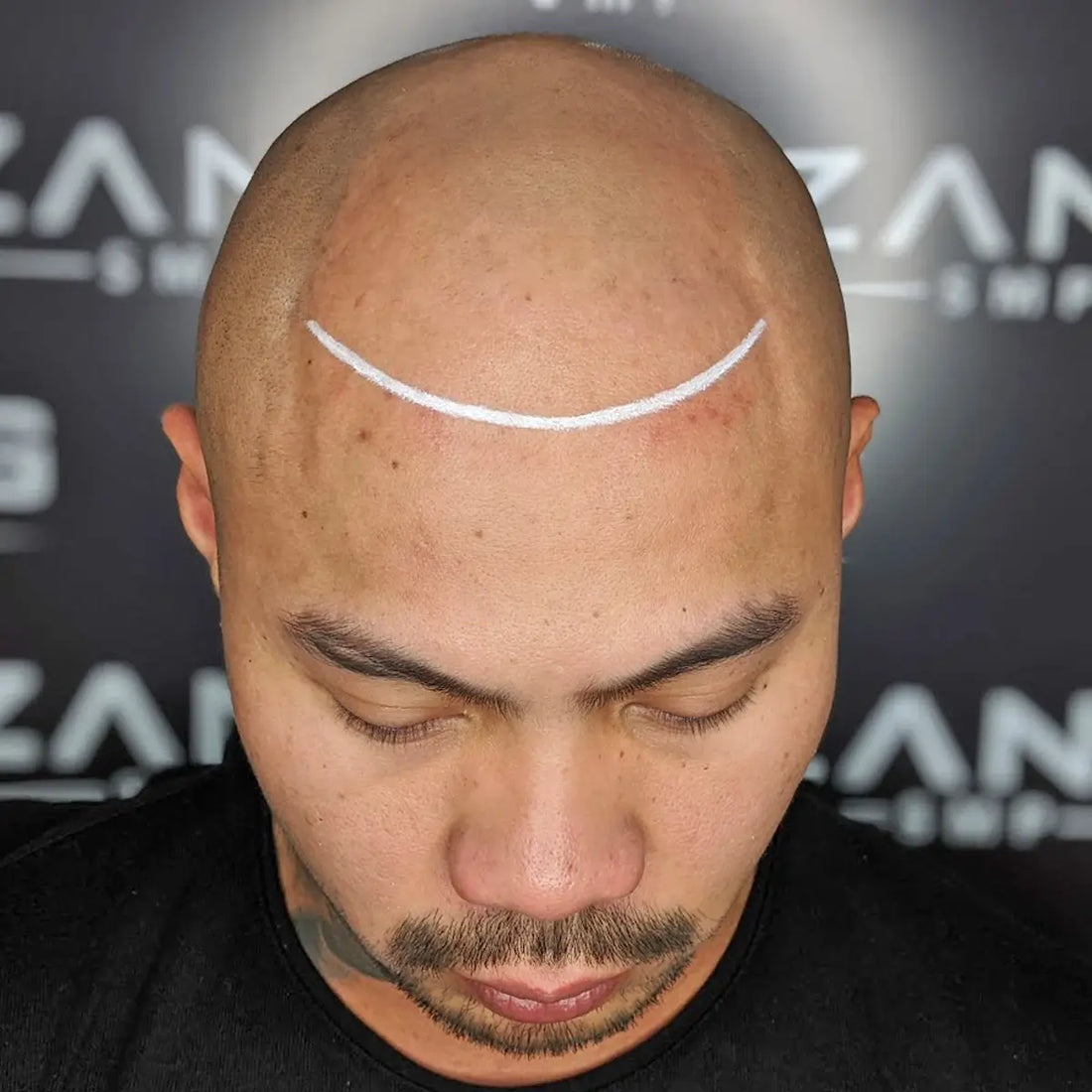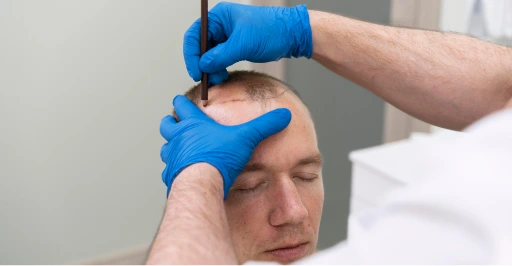What Is A Micropigmentation Specialist?
Reviewed by Zang and Ridwan
Training required for micropigmentation specialists
Quite simply, a micropigmentation specialist is a trained professional who has focused their knowledge base on the specifics regarding scalp micropigmentation hair growth or SMP. Scalp micropigmentation practitioners are rigorously trained in the arts and sciences of tattooing the scalp to give the appearance of hair follicles while also undergoing training and certification in the knowledge of bloodborne pathogens to greatly decrease the risk of infection. This training allows for knowledge in specializations such as male pattern baldness, female pattern baldness, density filler for thinning hair, scar tissue camouflage, beard enhancement, eyebrows, and others.
Zang SMP not only hires SMP practitioners but is responsible for training and mentoring world leaders in the field of scalp micro pigmentation. These specialists are educated with hands-on tutelage and knowledge of tools that allow them to work with natural hair patterns, differing levels of discomfort and pain tolerance, and spotting a good candidate for SMP treatments. An SMP practitioner must be an expert in the field of scalp micropigmentation treatments, permanent makeup, and hair loss solutions. When looking at a potential client a practitioner takes such things into regard as scar tissue, alopecia, thinning areas, whether the candidate has had any reconstructive surgery, the surrounding skin, and even other medical conditions.
What to expect from a consult
During the initial consultation, a client will be informed of how much discomfort they may feel, the kind of sun exposure they can allow themselves, how many treatments they should expect to undergo, whether they can endure heavy exercise, recovery time, and the sort of self-confidence they can expect when they see the desired result. An SMP practitioner aims to give the treated area the look of natural, fuller hair and the appearance of the ability to grow hair follicles in areas that otherwise would not be possible for the client. Scalp damage, potential hair growth, creating realistic-looking eyebrows, working with scars and natural pigments, potential risks, the hours needed to undergo micro pigmentation, and body shape are all other considerations an SMP practitioner will go over with you throughout that initial consultation.
Differences between hair tattoo and SMP
The difference between a hair tattoo and skin micro pigmentation treatments is something an inexperienced practitioner would have a difficult time explaining. Professionals understand that this procedure is considerably different from a tattoo because permanent cosmetic pigmentation resists fading or color change. A trained professional can tell you how time-consuming a procedure can be for patients using an inexperienced practitioner.
The industry behind Micropigmentation
The growth of the beauty industry is a rapidly growing one, especially when one eyes such trends as the rise in video social media and influencers. Within this sector micropigmentation is the fastest-growing field. The increasing amount of career opportunities and the varying work environments for micropigmentation specialists have attracted a burgeoning surge of trained professionals with an artistic bent, a need for success, and an excitement for working with new and differing clientele. The demand for scalp micro pigmentation, permanent makeup, and other pigment-oriented services shadows the current crop of practitioners, which makes for an incredible career for properly motivated, solution-based artists and professionals. The earning potential of such gifted and properly trained persons allows for an exciting opportunity for those interested.

Conditions requiring a micropigmentation specialist
The practitioners are assisting with more than just clients who want to save time with hair and makeup. Beyond wanting to make people feel and look like the best version of themselves, micro pigmentation specialists can assist with medical conditions such as trichotillomania, tremors, hair loss due to chemotherapy, bell's palsy, and alopecia.
Artists specializing in paramedical tattooing besides scalp micro pigmentation can create 3-D areola tattooing, and scar camouflage for such physical blemishes as facelifts, burns, acne marks, surgery, and cuts.
Differences between SMP specialists and tattoo artists
The differences between a micropigmentation practitioner and a tattoo artist are varied. To begin with, the needles used with tattoo ink can be far larger and often less precise than the needles used for micropigmentation. Body tattoo inks can vary in color while SMP inks are predominantly black and are made to resist fading over time. SMP does not pierce as deep into the skin as tattoo ink and needles.
While tattoo artists garner most of their experience through on-the-job training, micropigmentation specialists must undergo professional certified training from practitioners recognized in the field, such as those found at Zang SMP. Tattoo artists practice freehand styles that focus on creativity and are often highly artistic. The focus of micro pigmentation technicians is hair density, replication of hair follicles, hairlines, and other such hair-related subjects.
What to expect from micropigmentation
Many of those who have undergone SMP will tell you that the pain experienced is negligible when compared to that of traditional tattooing. A traditional tattoo is usually produced in as few sessions as possible, while SMP procedures are spread across several sessions over several weeks to allow for a more comfortable experience that contributes to better results.
SMP is a multi-faceted experience that includes such procedures as an initial consultation, patch testing to make certain that there are no adverse reactions to pigmentation, several sessions of work, and a post-procedure meeting to go over guidelines on how to care for your scalp moving forward. A tattoo artist, on the other hand, often covers some of this in one session and some steps are skipped altogether like the patch test.
A scalp micropigmentation specialist is more than an artist, they are a skilled practitioner trained in creating a comfortable procedure with a focus on the appearance of natural hair follicles to lessen the worry of hair loss and thinning hair and to hide the scalp from the appearance of baldness. An SMP technician can be defined as a practitioner who performed to create the appearance of a shaved head with no appearance of hair loss upon the final treatment.
